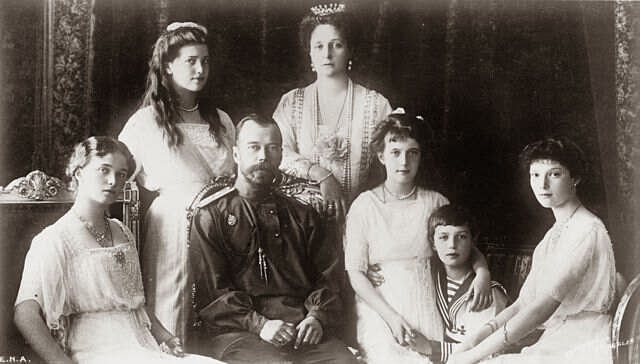

This book helped to make them all real people, with loves and faults and heartaches and naivety and faith and friendships. So often, the rich and the royal and the famous are set so far apart from everyone that it’s hard to see them as anything more than their image or persona. All of them, however, I felt some connection to. Of all of them, I felt a particular kinship with Alexandra, mother to the five children, for a wide variety of reasons that I’m not going to go into here (way too long!). Of course it’s impossible to really get to know people who are long-dead, but it really did feel like I was getting to know the seven members of this family. It follows their daily lives, relationships, and problems. Rappaport puts together the lives of the Romanov family through letters, diary entries, articles, etc. Happily, The Romanov Sisters was everything I’d hoped for. I immediately looked up the book and discovered that the audio was read by Xe Sands, who I’d heard great things about. I was so disappointed! Then, on the very same day that I gave up on that particular book, Kim from Sophisticated Dorkiness posted a picture on Instagram of The Romanov Sisters.

The book began with a very strong bias, and I prefer much more moderate and unbiased nonfiction. Unfortunately, when I did finally start listening to the audiobook of The Family Romanov (nonfiction works so much better on audio for me!), I didn’t get very far. I’m more of a sociologist than a political scientist or military historian! For me, the state of the government is the (very small) background on which a cultural study is laid. It’s the people I’m interested in, and the series of events that happened to those people, not the state of the government. I was so excited! I thought I would finally be able to learn about the Romanov family without getting too bogged down in political and military stuff. I’m really bad at reading history!)Ībout a year ago, I heard of a children’s nonfiction called The Family Romanov.

The latter, in particular, helps simplify things enough for me to understand. (Notably, what to me is “dull and dry” might be quite well written to someone better versed in these things!) In general, I tend to study history either through memoir, cultural case study, or children’s nonfiction. Many historical texts are dull and dry, and go right through my brain without making the slightest impression. My attempts to learn more have failed in the past because honestly, I’m just not terribly good with the way history is normally taught. At the same time, I learned very little in school about Russia’s politics and history besides the cursory glances related to the Cold War.

I have long been fascinated by the Romanovs and their fate during the Russian Revolution. Subtitled: The Lost Lives of the Daughters of Nicholas and Alexandra.


 0 kommentar(er)
0 kommentar(er)
